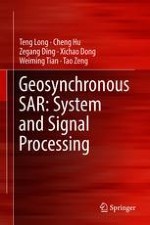2018 | OriginalPaper | Buchkapitel
5. Ionospheric Experiment Validation and Compensation
verfasst von : Teng Long, Cheng Hu, Zegang Ding, Xichao Dong, Weiming Tian, Tao Zeng
Erschienen in: Geosynchronous SAR: System and Signal Processing
Verlag: Springer Singapore
Aktivieren Sie unsere intelligente Suche, um passende Fachinhalte oder Patente zu finden.
Wählen Sie Textabschnitte aus um mit Künstlicher Intelligenz passenden Patente zu finden. powered by
Markieren Sie Textabschnitte, um KI-gestützt weitere passende Inhalte zu finden. powered by
